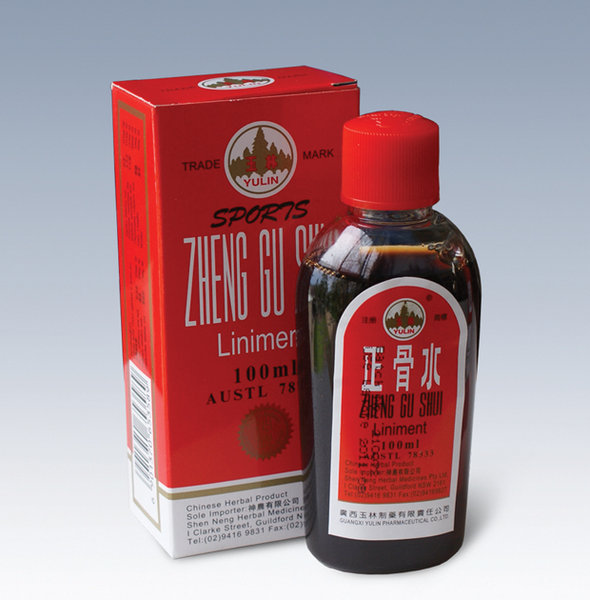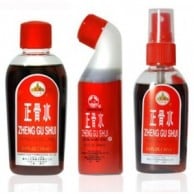
Zheng Gu Shui (juhng goo shway) is a Chinese herbal liniment known for its analgesic properties. The Chinese word "zheng gu" means "bonesetting" and "shui" means water. So, Zheng Gu Shui means "bonesetting water" or liquid. This external analgesic is known to relieve blood stagnation, promote healing, and soothe pain. As the name suggests, this herbal remedy can help promote the healing of broken bones. If the skin is not broken, it can be applied topically to the area of injury to relieve pain until the bone is set at the hospital.
Well known in many athletic and martial arts circles, this “miracle” balm can be used for all sorts of injuries, including those involving muscle and nerve pain. The most common indications are traumatic injuries, bruises, and sprains. Many people have found Zheng Gu Shui helpful for all kinds of pain from carpal tunnel to arthritis.
The Chinese medical explanation of how it works is by dispelling blood stagnation, moving qi, opening the channels, and invigorating the blood which will help to relax tendons and muscles, and reduce swelling.
The herbal formulation contains mostly camphor and menthol. Other ingredients include: alcohol, polygonum cuspidatum, camphor wood, fragrant angelica, moghania, zedoary, san-qi ginseng, and water.
 The medicinal effects of the herbs are as follows:
The medicinal effects of the herbs are as follows:
Polygonum cusidatum rhizome (Bushy Knotweed): relieves pain, reduces inflammation, stops bleeding
Camphor Wood (Radix Crotonis crassifolii, Chinese Ji Gu Xiang): increases local circulation, relieves pain
Frangrant Angelica (Bai Zhi): anti-inflammatory, relieves pain, treats muscle spasms and cramps
Moghania (Yi Tiao Gen): relieves musculoskeletal pain, stiffness, and soreness
Zedoary rhizomeor curcuma (a different species than Turmeric): anti-inflammatory relieves pain (especially shoulder pain)
San-Qi Ginseng (Tian Qi): stops bleeding, reduces bruising, swelling, inflammation and pain, relieves trauma
The suggested use is to apply the ointment directly to the (external) area of pain 2-3 times a day or as needed. Wrap the area with gauze, as it may stain clothing. Wash hands thoroughly after applying. Do not use Zheng Gu Shui on open wounds. Do not use Zheng Gu Shui near an open flame as it is flammable.


